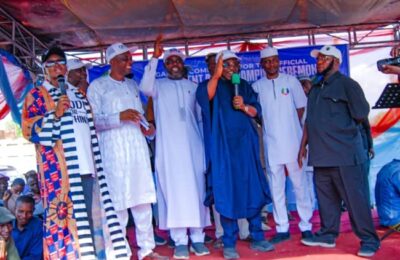In the labyrinth of Nigeria’s volatile political ecology, Kogi East stands as a paradox—rich in intellect and heritage, yet impoverished in political coherence. Once a citadel of ideological energy and ancestral honour, the region now drifts in the quicksand of leadership delusion, entrapped by what may aptly be termed the Messiah Syndrome: a pathological addiction to charismatic redeemers in place of institutional regeneration.
This syndrome, deeply ingrained in the collective psychology of the people, has produced a cyclical tragedy—one where each election season births a self-anointed deliverer, adorned with rhetoric and inflated promises, while the masses, starved of structural vision, genuflect before illusionary hope. It is a political psychosis that deifies individuals and demonizes dissent, where personality supplants partnership, and emotion trumps reason.
Every four years, the same political drama unfolds like a ritual: a “saviour” emerges, chorused by sycophants and serenaded by desperate followers. Songs of liberation echo through hamlets, villages and social media groups alike, yet the post-election reality remains unaltered—fractured roads, decayed institutions, and a populace caught in perpetual lamentation. Kogi East’s political space, once a forum of ideas, has become a shrine of hero worship where accountability is sacrificed on the altar of sentiment.
The Messiah Syndrome thrives on the emotional illiteracy of the electorate and the manipulative eloquence of opportunistic elites. Leaders present themselves as divine interventions rather than public servants, and the people—wounded by years of neglect—cling to them as symbols of redemption. But no region ascends through adoration; progress demands systems, not sanctuaries. Institutions, not idols. Governance anchored on divine theatrics rather than pragmatic partnerships is doomed to perpetuate underdevelopment.
The existential crisis in Kogi East politics is not merely moral—it is structural. Leadership without systems is poetry without grammar, a dance without rhythm. The region mistakes charisma for competence and theatrical empathy for transformative vision. The true tragedy is not the absence of leaders, but the absence of collaborative frameworks that outlive them. Governance here has become a transient performance, not a sustained policy continuum.
The Igala philosophical canon once espoused communal stewardship— “Omi ki lo ki denyo nwu eneka, chai ki denyo nwu ene duu!,” meaning “The rain that blesses one must bless all.” That ethic of collective elevation has been supplanted by atomistic greed and the idolatry of political personalities. The elders have been compromised, the youths commodified, and the women—historically the moral anchors of Igala society—have been relegated to tokenistic applause rather than policy participation.
Kogi East must, therefore, undergo a profound intellectual and civic reformation. It must exhume the buried ethos of partnership and enthrone a new political consciousness—one that venerates ideas, not icons. The coming generation must learn that power without systems is vapour, and leadership without collective intelligence is tyranny disguised as benevolence. No wonder, Alhaji Yahaya Bello once “whoever wishes to remain relevant in the state must obey and flow with the system,”
Truly, the next evolution of politics in the East should not ask who will save us, but how shall we save ourselves together.
True renaissance will not emerge from another messianic figure proclaiming emancipation from podiums drenched in populist poetry. It will rise from a consortium of enlightened citizens—scholars, artisans, traditional custodians, and reformists—united by institutional synergy rather than emotional dependency. Partnership must replace paternalism. Systems must supersede sentiment.
Until then, Kogi East will remain ensnared in its own myth—forever searching for a messiah in a desert where only systems can bring rain.
– Inah Boniface Ocholi writes from Ayah – Igalamela/Odolu LGA, Kogi state.
08152094428 (SMS Only)




